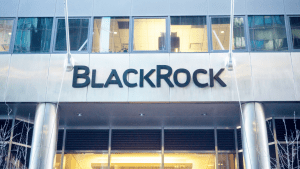Polygon (MATIC) launches ETH-like burning mechanism
2 min read
Polygon’s core development team announced this Tuesday (14) that it is rolling out the ETH 1559 Improvement Proposition (EIP 1559) into the testing network. The goal is to introduce burning of your native native MATIC token and improve network rates.
EIP-1559 is an update that was part of the hard fork London implemented on the ETH network in August as one of the biggest changes in history.
“After extensive discussions and community input, Polygon is taking steps to bring this much-requested update to our network. It will air on the Mumbai test network on December 14 at 8 am UTC.” said the Polygon team.
Polygon implements EIP-1559
As the team pointed out, in practice, EIP-1559 eliminates first price auction as the primary fee calculation mechanism.
Instead, it creates a base rate for transactions to be included in the next block. In addition, it creates a priority rate to speed up transaction processing. Then the base rate, which fluctuates depending on network congestion, is burnt off.
The changes do not reduce fees paid for transactions. After all, Gas prices are determined by supply and demand.
However, the improvement proposal allows users to better estimate costs, since the base rate is the minimum price for inclusion in the next block. According to Polygon, this will result in fewer users overpaying.
Impacts on MATIC supply
The native MATIC token has a fixed supply of 10 billion. Therefore, any reduction in the number of available tokens will have a deflationary effect. The expectation is that the price of the token will increase as the supply decreases.
“We used ETH’s experience from the upgrade as a basis to simulate the potential impact on MATIC’s total supply. The analysis suggests that the annualized burning would represent 0.27% of the total supply of MATIC”, they detailed.
dApp users and validators
Also according to the Polygon team, users of decentralized applications (dApps) based on the Polygon network will benefit from more predictable rate pricing. On the other hand, there is the downside that there are fewer MATIC tokens available because of burning.
Meanwhile, network validators, which receive on MATIC, will also benefit from the implementation, according to Polygon.
This is because as the base rate automatically increases if the block is full, the changes will result in fewer spam transactions and will lead to less network congestion.
However, Polygon emphasizes that validators, which receive the full amount of fees, will only receive the priority fee in the future.
“The Polygon core development team is very excited to bring these improvements to everyone in the ecosystem,” they concluded.
Women are beginning to play an increasingly important role in cryptoindustry






